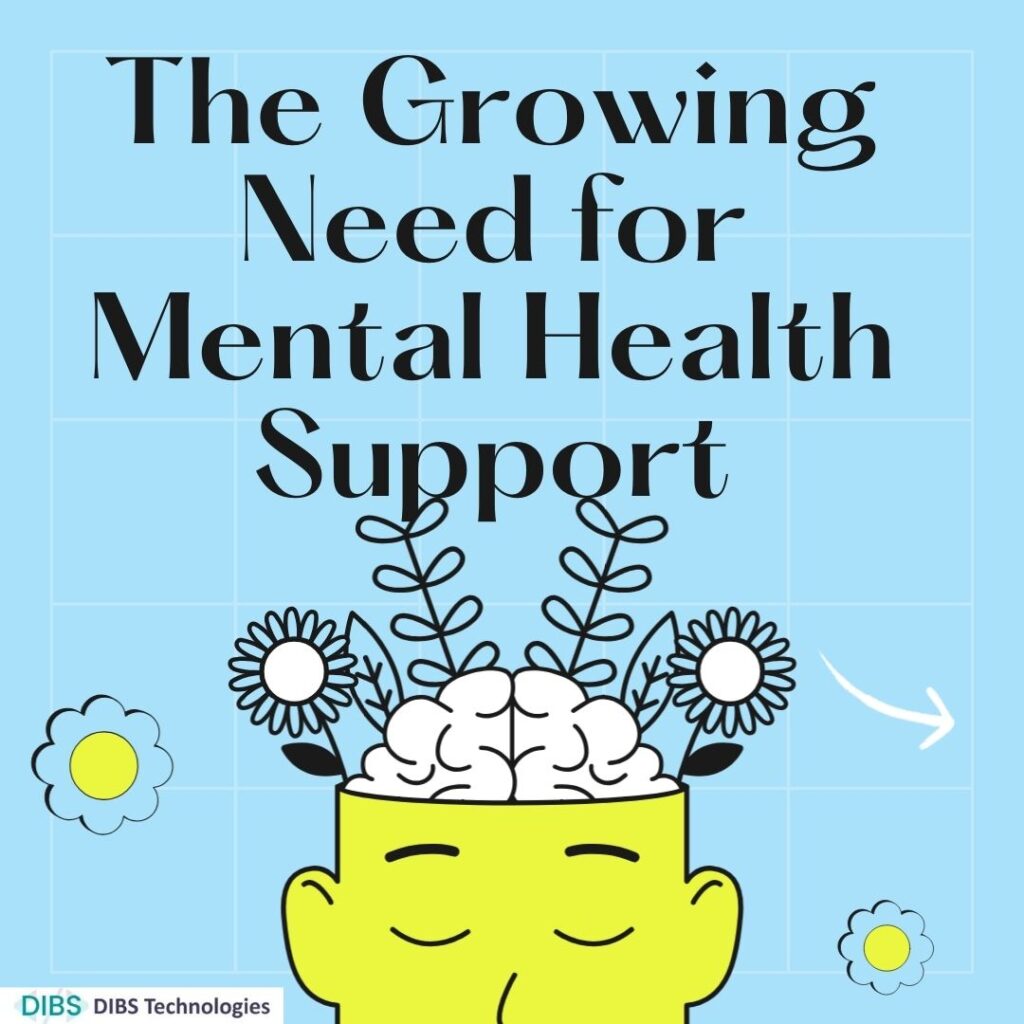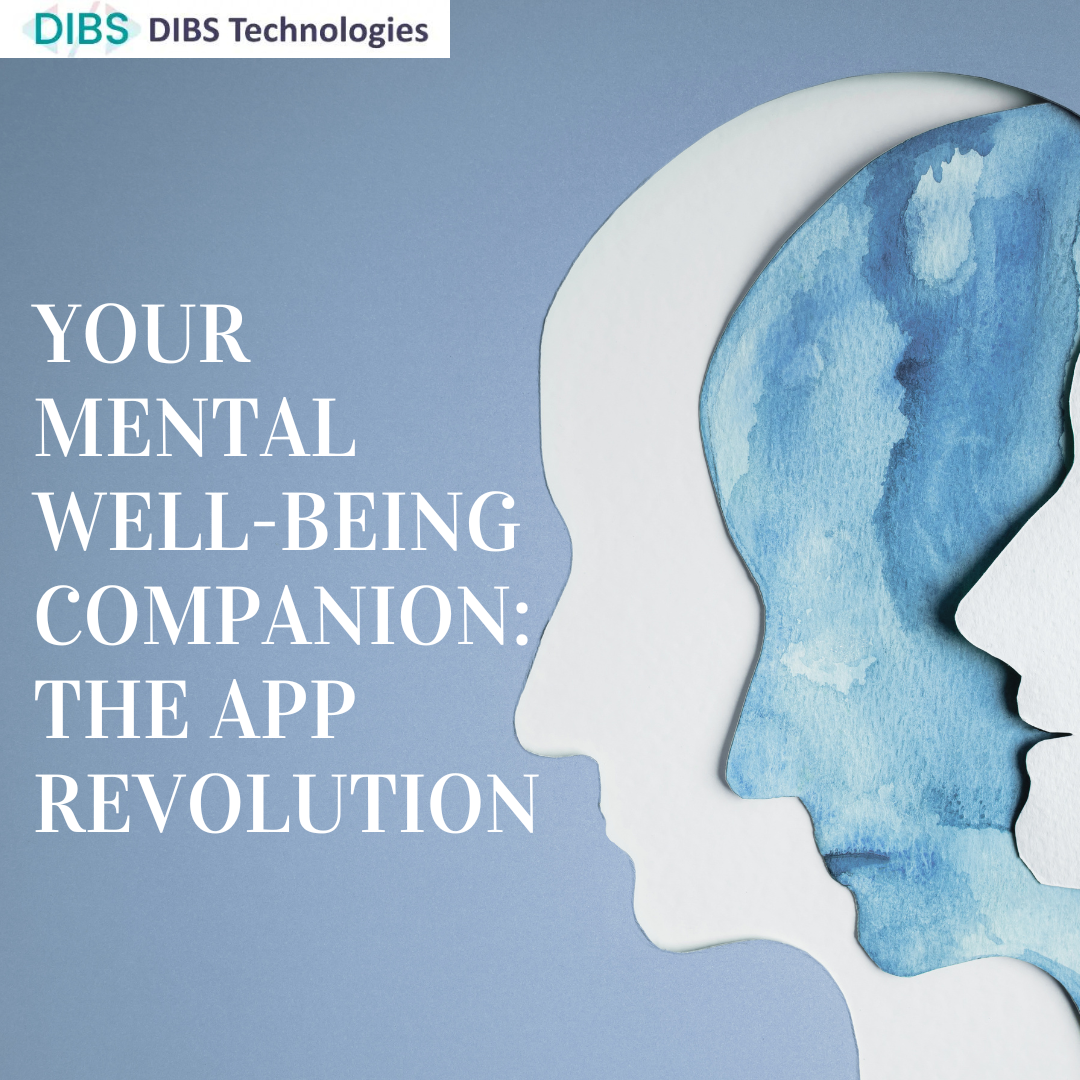In recent years, the panorama of mental fitness care has undergone a transformative shift with the emergence and substantial adoption of mental health apps. As technology keeps playing an integral position in our day-to-day lives, these apps are proving to be powerful tools in selling intellectual well-being, offering handy sources, and revolutionizing the way we method mental health care.
The Growing Need for Mental Health Support

The upward push of mental health apps may be attributed to the growing attention and popularity of mental health as a vital component of ordinary well-being. The World Health Organization (WHO) estimates that approximately one in four people internationally will revel in mental fitness trouble sooner or later in their lives. Despite this occurrence, stigma and restricted right of entry to traditional mental health offerings have traditionally hindered many individuals from searching for help.
In the face of those challenges, mental health apps have emerged as a convenient and discreet solution. It is to cope with intellectual fitness worries. With the faucet of a finger, users can access quite a few tools and resources designed to assist their intellectual well-being, ranging from meditation and strain management sporting activities to virtual therapy sessions.
Key Features of Mental Health Apps
Accessibility and Convenience: One of the primary advantages of mental health apps is their accessibility. Users can access these sources every time, anywhere, providing a stage of comfort that conventional therapy might not provide. This accessibility is specifically crucial for people in far-flung regions or those with mobility problems.
Personalization and Tailored Support: Many mental health apps utilize advanced algorithms and gadget mastering to provide personalised reports. These apps can adapt to a person’s wishes, presenting tailor-made suggestions based on a person input and behaviour. This personalization complements the effectiveness of mental fitness interventions, making them extra relevant and attractive for users.
Diverse Range of Tools: Mental health apps provide a diverse variety of tools and capabilities to address various components of well-being. From mood tracking and journaling to guided meditation and cognitive-behavioural remedy exercises, these apps cater to an extensive spectrum of mental health wishes. Users can pick out the equipment that resonates with them, growing a customised approach to self-care.
Anonymous Support: Overcoming the stigma related to intellectual fitness may be an enormous barrier to looking for assistance. Mental health apps provide a stage of anonymity. Thus, permitting users to explore and interact with aid without the fear of judgment. This anonymity encourages those who may otherwise avoid searching for assistance to take proactive steps closer to better intellectual health.
Impact and Effectiveness
Research on the effectiveness of mental health apps is still evolving, but early studies suggest promising outcomes. A systematic review published in the Journal of Medical Internet Research found that mental health apps can be effective in reducing symptoms of depression and anxiety. However, it’s essential to acknowledge that these apps are not a one-size-fits-all solution. Also, their effectiveness may vary based on individual needs and preferences.
Challenges and Considerations
While mental health apps offer numerous benefits, they also face challenges and considerations that must be addressed:
Data Privacy and Security: The collection and storage of sensitive mental health data raise concerns about privacy and security. App developers must prioritize robust security measures to protect user information and adhere to ethical standards.
Digital Divide: The digital divide, characterized by disparities in access to technology, remains a challenge. Not everyone has equal access to smartphones or reliable internet connections, limiting the reach of mental health apps. We must make efforts to bridge this gap and ensure inclusivity.
Supplement, Not Substitute: Mental health apps should be viewed as supplements to, rather than substitutes for, traditional mental health care. While these apps can be valuable tools, severe mental health conditions may require more intensive interventions. These can be provided by mental health professionals.
Conclusion
The upward push of mental health apps marks a full-size milestone within the ongoing attempt to prioritize and destigmatize intellectual health care. As the generation continues to enhance, these apps can reach an international audience. Thus, imparting available and personalized assistance for individuals navigating the complexities of intellectual well-being. However, it’s far essential to method mental fitness apps with a balanced attitude, recognizing their advantages whilst acknowledging their boundaries. Ultimately, the mixing of mental fitness apps into our virtual lives represents a wonderful step toward developing a greater inclusive and supportive intellectual health landscape for all.
Talk to our experts and find out more about the latest healthcare technologies. See how the DIBS team can help you improve communication and coordination between healthcare systems. Thus, streamlining workflows, and enhancing patient care.







Leave a Comment